Are you considering ending a contract with a client and unsure how to approach it? Crafting a well-structured termination letter is crucial to maintaining professionalism while clearly stating your intentions. In this article, we'll guide you through the essential components of a client contract termination letter, ensuring you cover all bases while minimizing potential conflicts. So, let's dive in and explore the key elements that will help you navigate this delicate situation seamlessly!

Clear Identification of Parties
A clear identification of the parties involved is crucial in any contract termination notice, especially for legal documents. This section should include the full legal names of the parties, their respective roles (for example, Client and Contractor), and any relevant identifiers such as business registration numbers, addresses, or tax identification numbers. In situations involving corporate entities, the corporate structure (such as LLC, Inc., etc.) must be specified to avoid ambiguity. Accurate identification ensures that both parties are recognized and prevents potential disputes regarding the legitimacy of the termination process, reflecting a formal acknowledgment of the existing contractual obligations prior to dissolution.
Effective Termination Date
The effective termination date of the client contract, referenced in the agreement, plays a crucial role in the dissolution of services. Contracts typically specify a termination clause, allowing for the conclusion of obligations between parties. For instance, a standard notice period may range from 30 to 90 days, depending on the terms outlined at the signing location, such as New York or California, where regulations can further influence procedures. Formal notifications, including written letters and email correspondence, are essential in initiating this termination. Documentation should accurately reflect the final day of service, ensuring all deliverables are completed before this date. Following this process assists in mitigating disputes and fosters a professional closure to the business relationship.
Reason for Termination
The termination of service contracts, such as those related to corporate client agreements, often arises due to various critical factors, including material breach of terms or failure to meet agreed-upon service levels. A common reason for termination involves non-performance, where a client may receive insufficient deliverables or experience delays, impacting business operations and efficiency. Instances of financial instability, such as declared bankruptcy or significant payment defaults, can also lead to contract dissolution. Additionally, changes in business strategy or shifts in policy direction, particularly in competitive industries, often necessitate reevaluation of existing contracts. All these reasons underscore the importance of maintaining clear communication in client relationships and establishing well-defined service-level agreements for mutual benefit.
Obligations Post-Termination
Clients must adhere to specific obligations post-termination outlined in the contract to ensure a smooth transition. All confidential information, including proprietary data, must be returned or destroyed as per the agreement stipulations to protect intellectual property. Final payments for services rendered prior to termination must be settled within 30 days, preventing any financial discrepancies. Any remaining materials or assets, such as equipment or documentation, need to be returned to the originating party in the condition specified in the contract. Compliance with non-disclosure agreements must continue indefinitely, safeguarding sensitive information against potential misuse. Lastly, ongoing support or maintenance post-termination, if specified, should be clearly defined to avoid any ambiguity in responsibilities.
Contact Information for Further Communication
Succinct and clear contact information ensures effective communication during the client contract termination process. Include first and last name of the primary contact person, as well as the official title, such as Account Manager or Legal Representative. Provide the company's name prominently to establish context, followed by phone number formatted with parentheses and dashes, like (123) 456-7890 for ease of understanding. Include a professional email address, using a company domain for credibility, such as contact@companyname.com. Finally, consider adding the company's physical address, complete with street, city, state, and zip code, to facilitate any potential mail correspondence or official document actions that may be necessary during finalization.
Letter Template For Client Contract Termination Samples
Letter template of client contract termination for service dissatisfaction
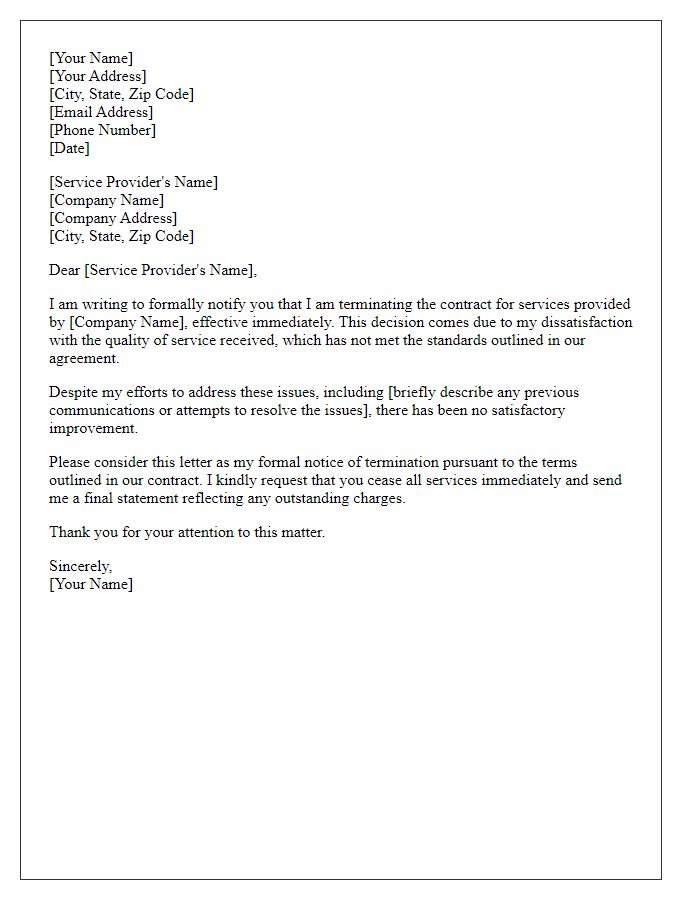

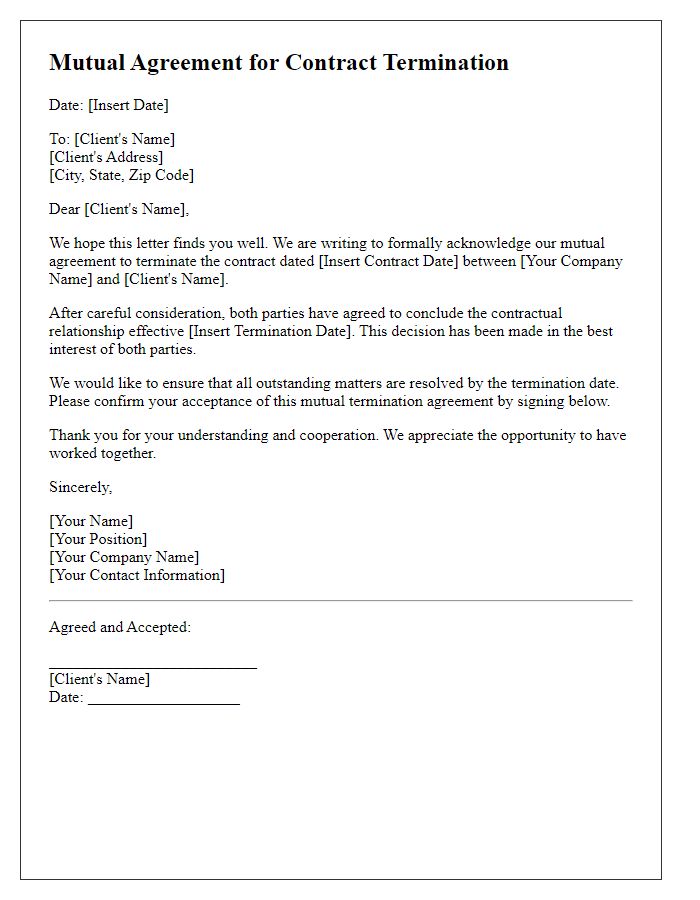
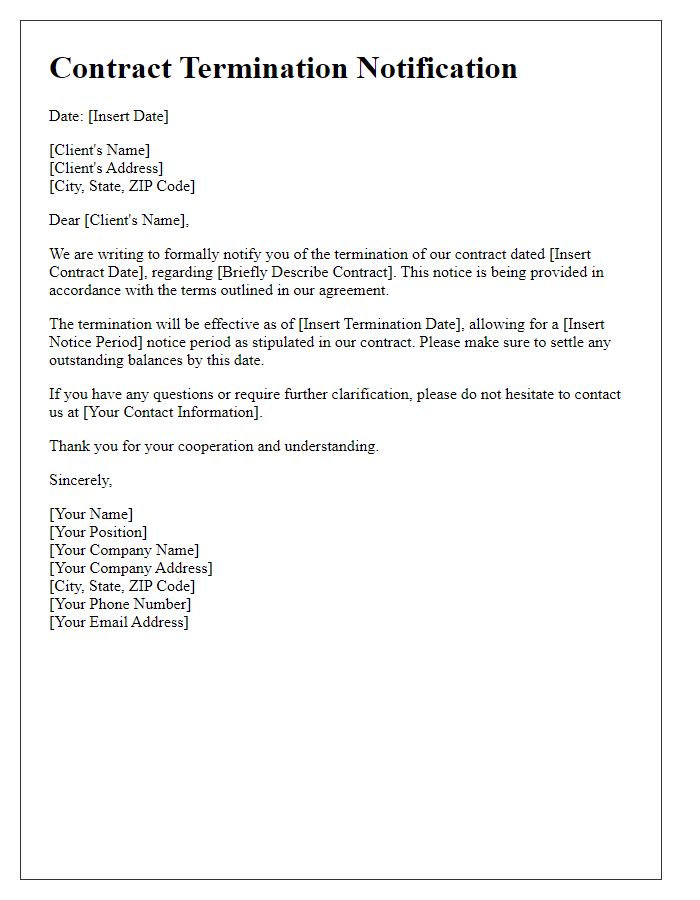
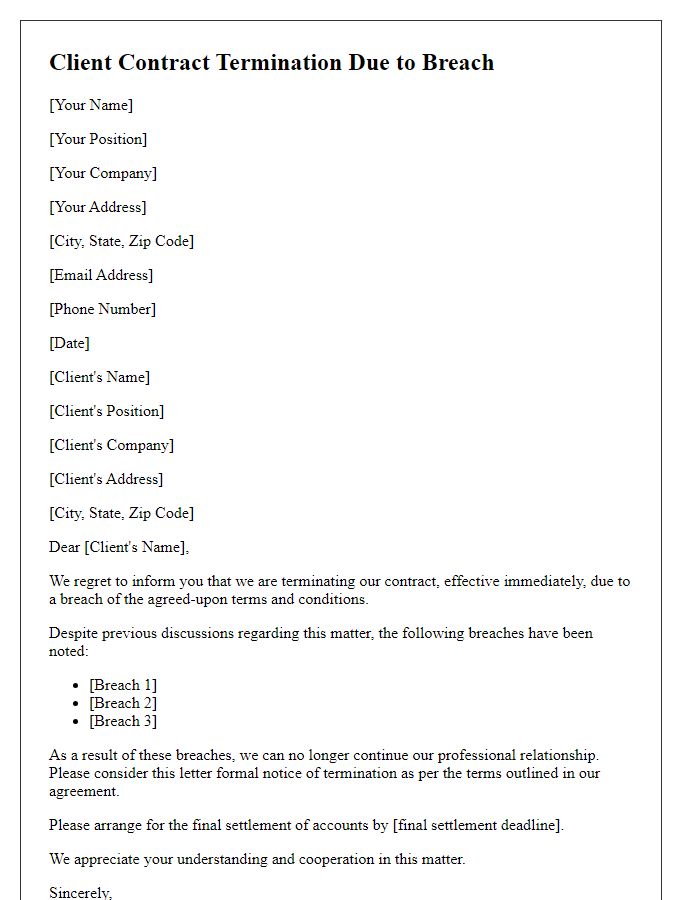
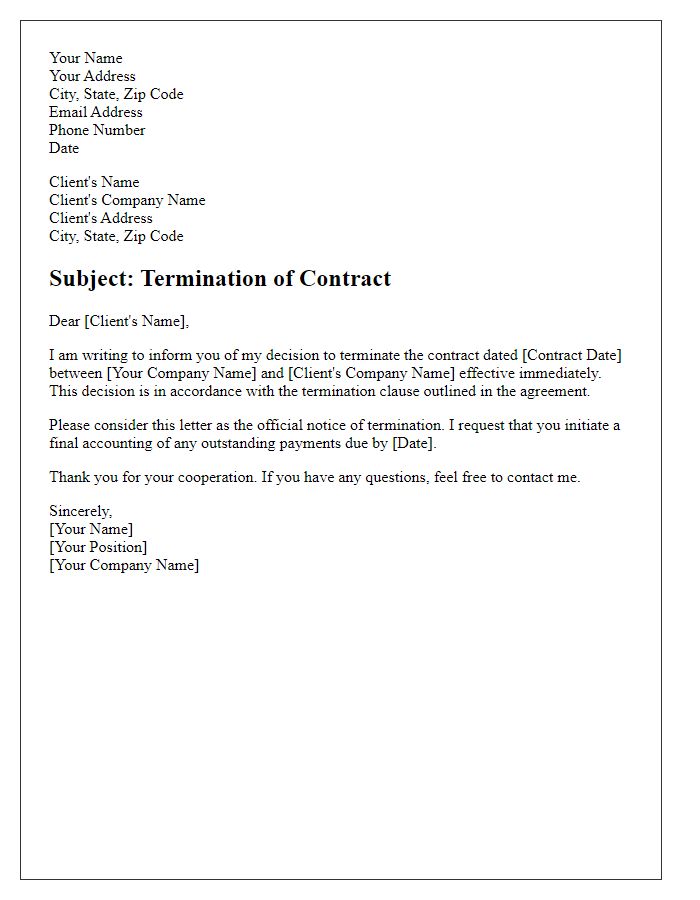
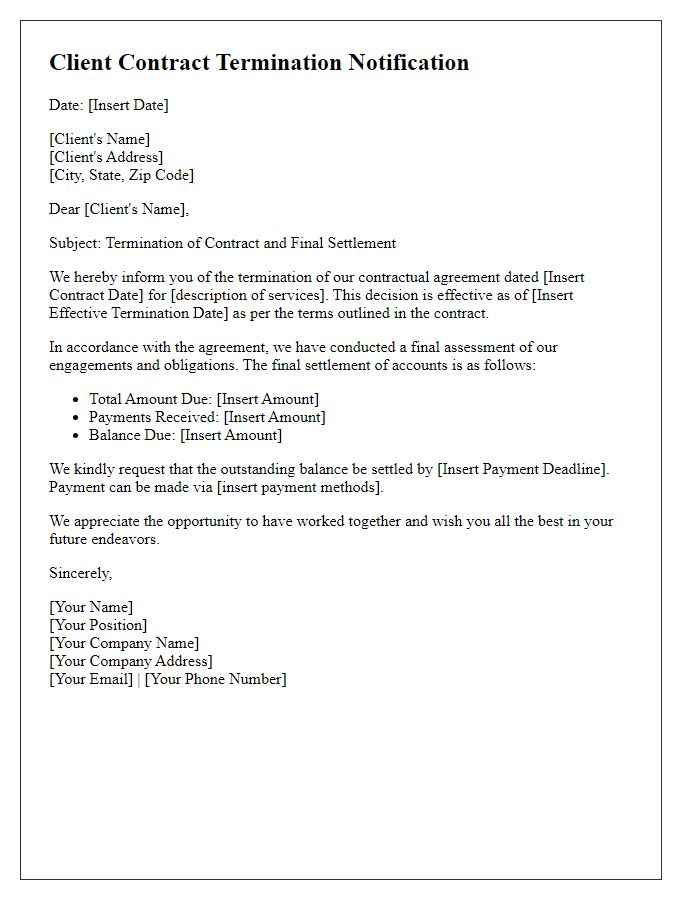
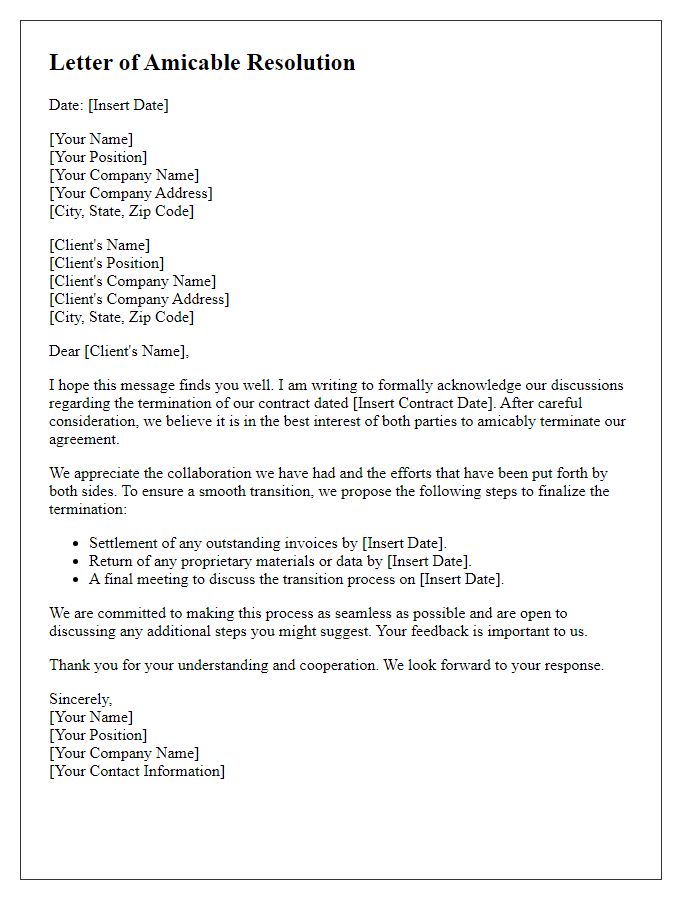
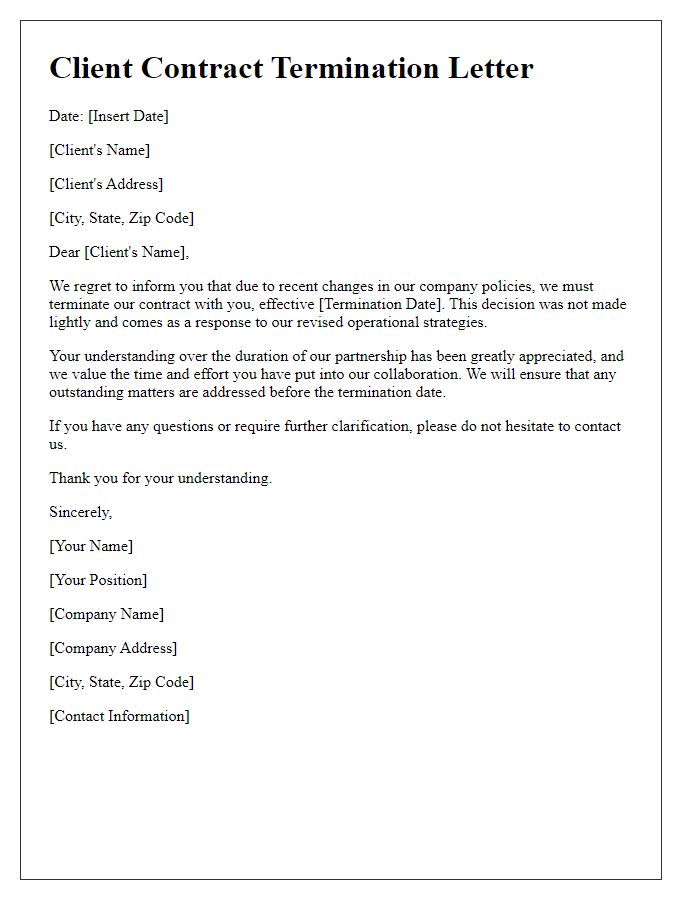
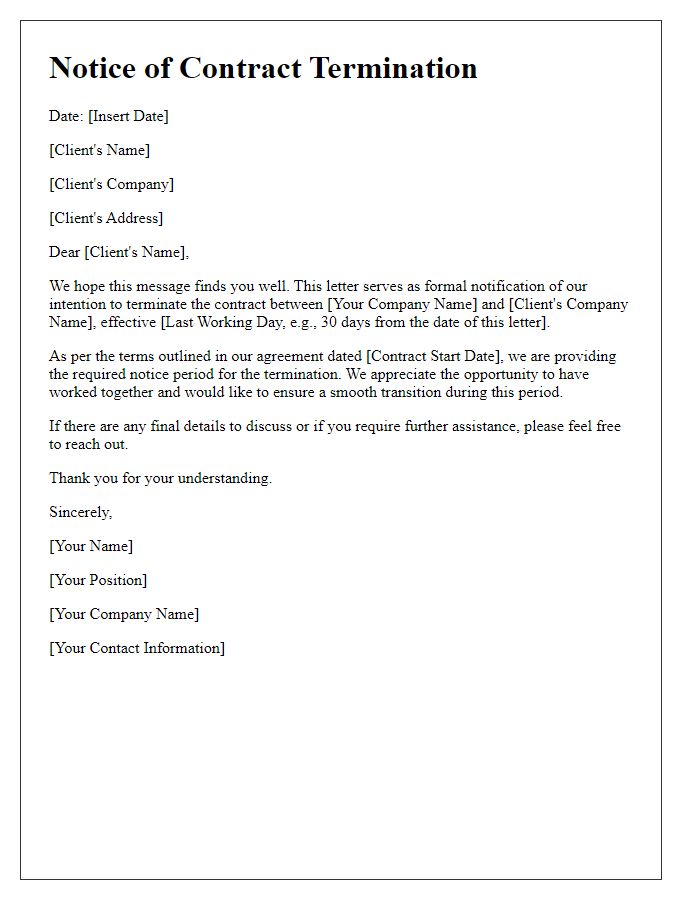
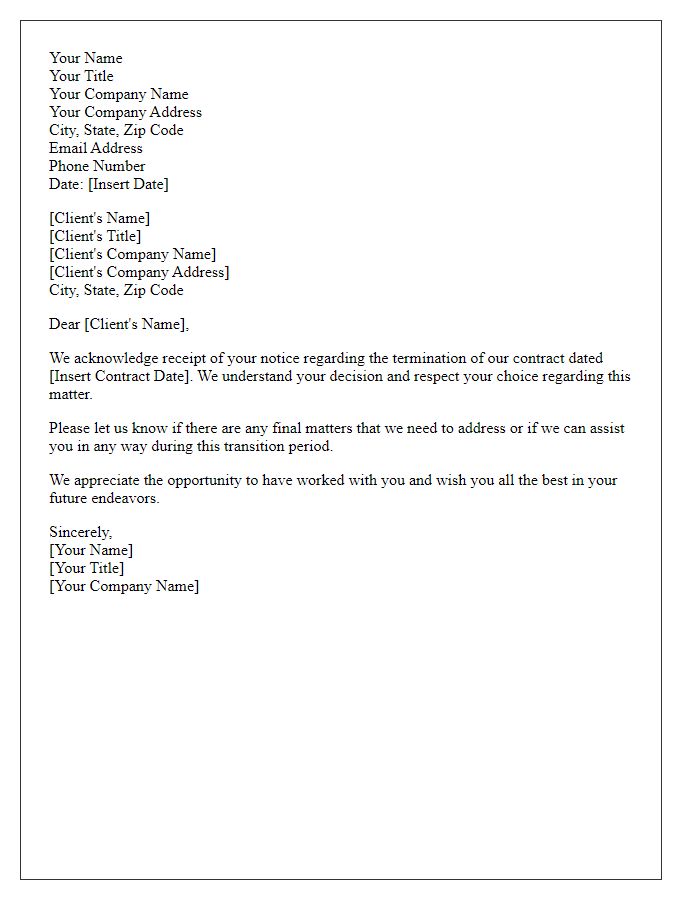


Comments